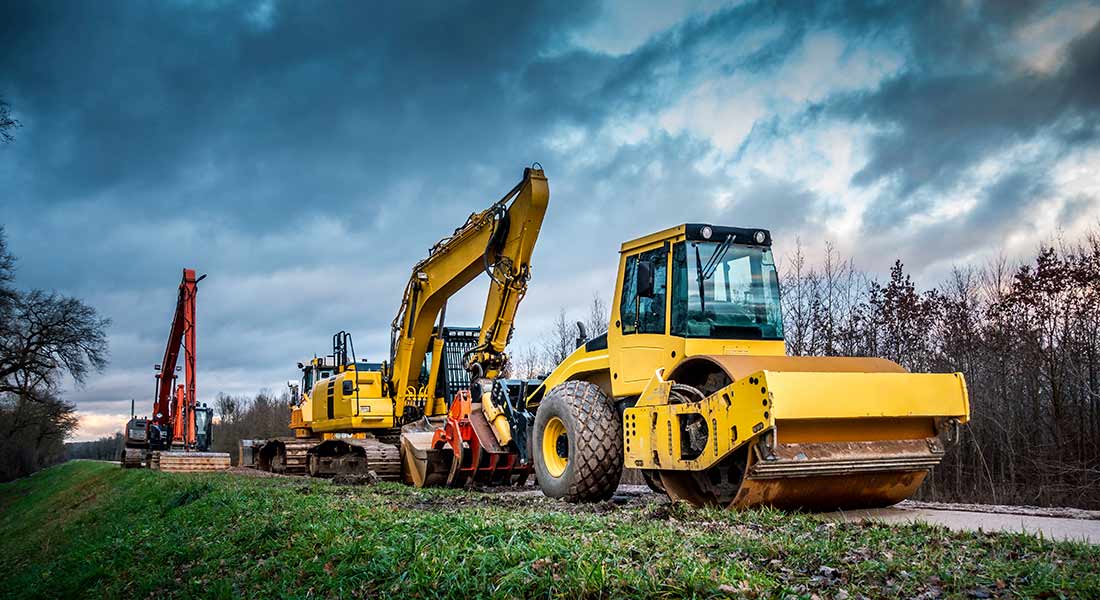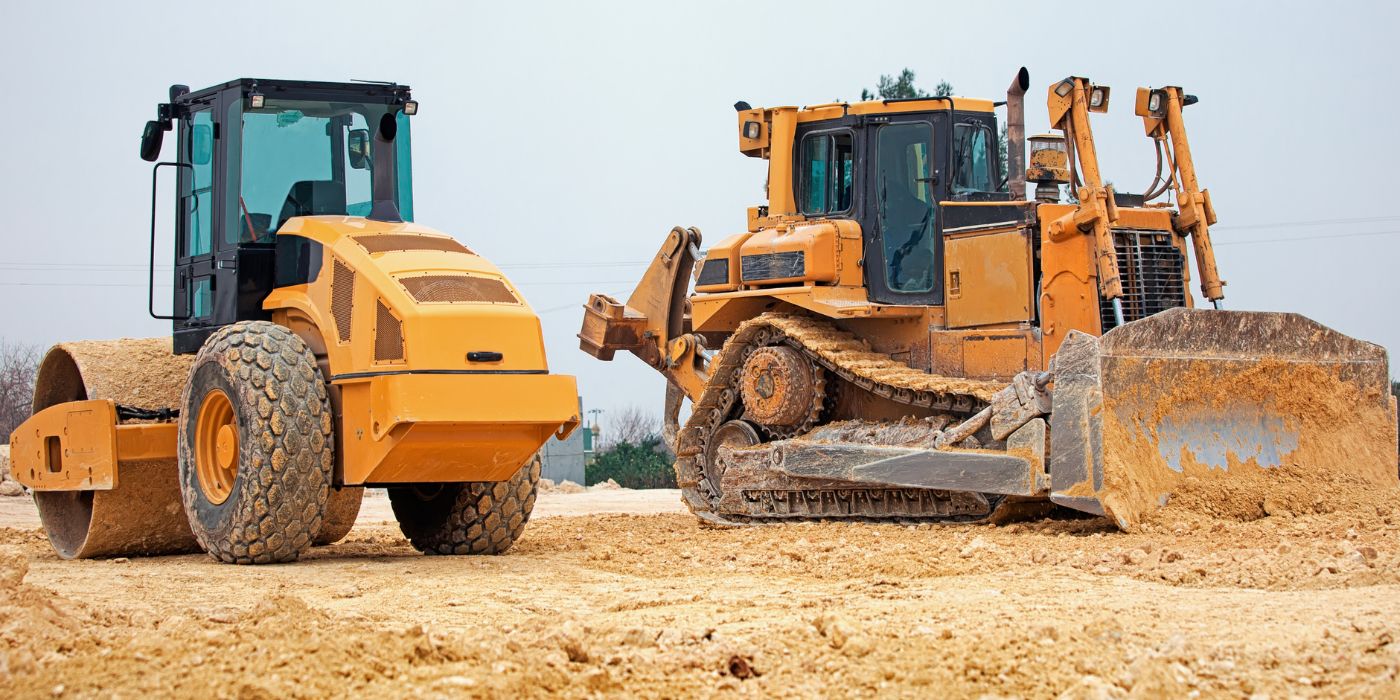Forklift Rental in Tuscaloosa AL: Versatile Lifting Solutions for Your Demands
Forklift Rental in Tuscaloosa AL: Versatile Lifting Solutions for Your Demands
Blog Article
Discovering the Financial Benefits of Renting Building Equipment Compared to Owning It Long-Term
The choice between renting and owning building and construction equipment is crucial for economic management in the sector. Renting offers immediate cost financial savings and functional flexibility, allowing firms to assign resources more efficiently. Recognizing these nuances is crucial, particularly when thinking about how they line up with specific job requirements and economic methods.

Cost Contrast: Leasing Vs. Having
When evaluating the economic ramifications of renting out versus having construction tools, an extensive cost comparison is essential for making informed choices. The option between possessing and leasing can dramatically impact a firm's profits, and understanding the connected prices is critical.
Renting building and construction equipment usually involves lower in advance costs, enabling businesses to allocate resources to various other functional needs. Rental arrangements typically include versatile terms, enabling firms to access advanced equipment without lasting dedications. This adaptability can be particularly beneficial for temporary tasks or changing work. However, rental costs can gather over time, possibly exceeding the cost of ownership if equipment is required for an extensive period.
Conversely, possessing building and construction tools requires a significant initial financial investment, in addition to recurring prices such as depreciation, funding, and insurance coverage. While possession can lead to long-lasting financial savings, it additionally binds resources and might not offer the very same level of flexibility as renting. In addition, possessing equipment necessitates a commitment to its utilization, which might not always straighten with job needs.
Inevitably, the decision to rent out or have should be based on a comprehensive analysis of certain project demands, economic ability, and long-lasting strategic goals.

Maintenance Expenditures and Obligations
The option in between possessing and leasing construction devices not only involves economic factors to consider however also incorporates recurring maintenance expenses and responsibilities. Having devices needs a considerable dedication to its upkeep, which includes routine assessments, repair work, and prospective upgrades. These responsibilities can rapidly collect, resulting in unexpected costs that can stress a budget.
On the other hand, when leasing tools, maintenance is typically the obligation of the rental firm. This plan permits service providers to avoid the financial problem related to deterioration, as well as the logistical difficulties of scheduling repair work. Rental arrangements typically include provisions for maintenance, suggesting that service providers can concentrate on completing tasks instead of stressing regarding devices condition.
Furthermore, the diverse variety of tools available for rent allows firms to choose the latest models with advanced modern technology, which can improve efficiency and performance - scissor lift rental in Tuscaloosa Al. By deciding for leasings, companies can prevent the lasting responsibility of devices depreciation and the connected maintenance headaches. Eventually, reviewing upkeep expenditures and duties is critical for making a notified choice about whether to possess or rent out construction equipment, considerably impacting general job prices and operational effectiveness

Depreciation Impact on Ownership

A significant aspect to take into consideration in the decision to have building equipment is the impact of depreciation on total ownership costs. Depreciation stands for the decline in worth of the devices with time, affected by aspects such as use, wear and tear, and developments in technology. As tools ages, its market price diminishes, which can considerably influence the owner's financial setting when it comes time to trade the devices or offer.
For construction companies, this devaluation can convert to substantial losses if the equipment is not made use of to its greatest capacity or if it lapses. Proprietors must represent depreciation in their economic estimates, which can cause higher total expenses contrasted to renting. Additionally, the tax obligation implications of depreciation can be complex; while it may supply some tax obligation advantages, these are commonly offset by the truth of reduced resale value.
Eventually, the concern of depreciation highlights the value of understanding the lasting monetary dedication entailed in having building equipment. Business should carefully review exactly how often they will utilize the tools and the possible economic impact of depreciation to make an enlightened decision regarding possession versus renting.
Economic Versatility of Renting Out
Leasing building and construction tools provides considerable financial adaptability, enabling business to allocate resources a view it lot more effectively. This flexibility is especially crucial in a sector identified by changing task demands equipment rental companies near me and differing workloads. By opting to rent out, services can avoid the significant capital investment required for buying devices, maintaining capital for other operational requirements.
Additionally, renting out equipment allows firms to tailor their equipment choices to specific job demands without the long-term commitment linked with ownership. This indicates that services can quickly scale their equipment stock up or down based on awaited and present task demands. Consequently, this flexibility minimizes the danger of over-investment in equipment that might become underutilized or outdated in time.
One more financial benefit of renting is the possibility for tax obligation advantages. Rental payments are typically considered operating costs, enabling immediate tax obligation deductions, unlike devaluation on owned and operated devices, which is topped numerous years. scissor lift rental in Tuscaloosa Al. This immediate cost recognition can better enhance a company's cash setting
Long-Term Project Considerations
When assessing the long-lasting needs of a building and construction organization, the choice in between renting and having equipment becomes extra complex. For jobs with prolonged timelines, purchasing tools might seem useful due to the possibility for reduced general prices.
In addition, technical innovations position a substantial factor to consider. The building market is evolving rapidly, with new equipment offering enhanced performance and security features. Leasing allows companies to access the most up to date technology without dedicating to the high upfront prices associated with getting. This versatility is specifically valuable for services that take care of varied tasks requiring various sorts of devices.
In addition, financial stability plays a vital duty. Possessing devices frequently involves substantial capital expense and devaluation issues, while renting permits for even more predictable budgeting and capital. Eventually, the option between having and leasing should be straightened with the calculated purposes of the building service, taking into consideration both present and anticipated task demands.
Verdict
To conclude, leasing building and construction equipment uses substantial monetary benefits over lasting ownership. The lessened ahead of time expenses, elimination of upkeep duties, and evasion of devaluation add to enhanced capital and financial versatility. scissor lift rental in Tuscaloosa Al. Furthermore, rental settlements work as instant tax reductions, further profiting service providers. Eventually, the decision to rent out rather than Resources very own aligns with the dynamic nature of construction tasks, enabling versatility and access to the most up to date equipment without the financial burdens related to ownership.
As equipment ages, its market value lessens, which can significantly affect the owner's financial position when it comes time to market or trade the equipment.
Leasing building tools provides substantial monetary flexibility, enabling companies to allocate resources much more effectively.Additionally, renting out tools enables firms to tailor their devices choices to specific job requirements without the long-lasting commitment connected with possession.In conclusion, renting out building devices uses considerable monetary advantages over lasting ownership. Inevitably, the choice to lease rather than own aligns with the vibrant nature of construction jobs, enabling for versatility and access to the latest tools without the monetary problems associated with ownership.
Report this page